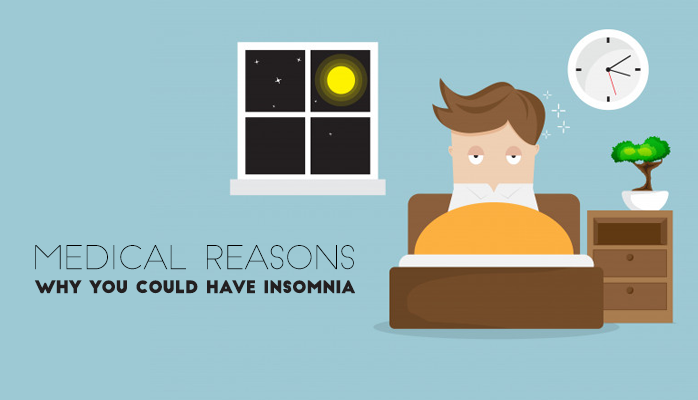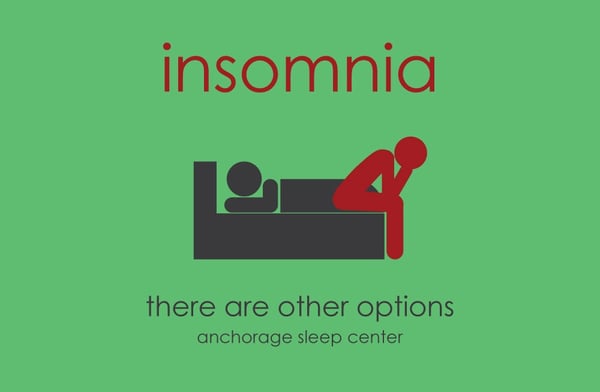What is Insomnia
Insomnia is a sleep disorder that affects your ability to fall asleep, stay asleep throughout the night, or sleep until a reasonable hour in the morning. The result of insomnia is mild to severe sleep deprivation, which can have big consequences.
Insomnia can negatively impact your life in the following ways:
- Emotionally
- Cognitively
- Physically
- Socially
Every area of your health can be greatly reduced from sleep deprivation related to insomnia. If the cause of your insomnia is medical, insomnia can be a vicious revolving door that worsens your medical symptoms, which continues to worsen your insomnia.
There are two types of insomnia:
- Primary insomnia – insomnia as a direct result of something else
- Secondary insomnia – insomnia with no clear, underlying issue
Insomnia can also be acute (short term, a month or less) or chronic (long-term, at least three times per week for a month or more). Medical reasons for insomnia tend to be chronic and primary, meaning that there is a clear cause and the insomnia is an ongoing problem. The medical reasons you could have insomnia includes factors like:
- Disease
- Medications
- Psychological factors
- Demographic factors
Disease Risk Factors for Insomnia
There are a number of different diseases that can cause or exacerbate insomnia, including:
- Short-term illnesses
- Chronic pain
- Diabetes
- Kidney disease
- Lung disease
- Arthritis
- Heart disease
- Heavy smoking
- Sleep apnea
- Restless leg syndrome (RLS)
- Addiction
- Parkinson’s disease
- Alzheimer’s disease
- Mental disease
Insomnia is often chronic when it is caused by chronic disease, though insomnia caused by short-term illnesses is likely to be acute. Insomnia can be greatly mitigated or stopped with proper treatment of disease.
Medication Risk Factors for Insomnia
In addition to disease causing insomnia, numerous medications can also cause insomnia as a side effect. Some medications commonly known to cause insomnia are:
- Diet pills
- Steroids
- High blood pressure medications
- Theophylline
- Phenytoin
- Levadopa
- Decongestants
Your doctor may be able to work with you to counteract medication-induced insomnia, such as via the use of alternate medications, melatonin, or other natural remedies.
Demographic Causes of Insomnia
Beyond medications and disease, there are biological factors at play in causing insomnia that are also medical in nature, mainly:
- Age
- Sex
As we age, our sleep cycles change. We tend to:
- Go to bed earlier
- Wake up earlier
- Require naps during the day.
People over the age of 60-65 are more likely to have insomnia and report trouble with sleep as they struggle to adjust to these natural chances.
Age induced insomnia is likely due to:
- Natural biological and hormonal changes
- Being more likely to take certain medications that affect sleep
- Changed in lifestyle
Also, insomnia is more common in women than men. Other medical risk factors related to being female that may cause short-term (acute) insomnia are:
- Pregnancy
- Premenstrual syndrome
- Menopause
Medical/Psychological Risk Factors for Insomnia
Lastly, while not necessarily strictly “medical”, psychological factors that have a medical component can also cause insomnia. These causes are very common for people who have chronic and acute insomnia, and include:
- Depression
- Chronic stress
- Chronic anxiety
With such conditions, your body/brain may undergo chemical changes that make it harder to sleep, thus causing insomnia.
Treating Medically Caused Insomnia
Treatments for insomnia caused by medical reasons are likely to be similar to general insomnia treatments, and may even be more straightforward because medically caused insomnia usually has a known and specific cause. These treatments might include:
- Changes in medication
- Lifestyle changes
- Pain treatment
Over the counter medications are usually not recommended – such as melatonin – because they may have undesired side effects and lose their effectiveness over time, though in some cases they may be recommended by your doctor.
Treating insomnia will likely require direct consultation with your doctor or a sleep specialist, and may require trial and error to narrow down possible causes and best treatment options.
If you live in Alaska and are worried that you are struggling with insomnia, please contact one of our sleep specialists.



